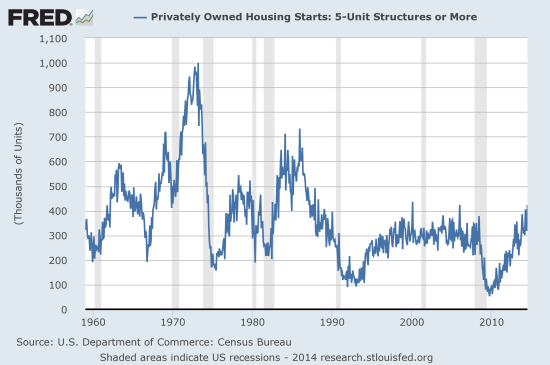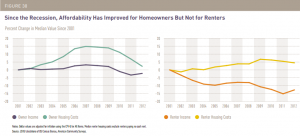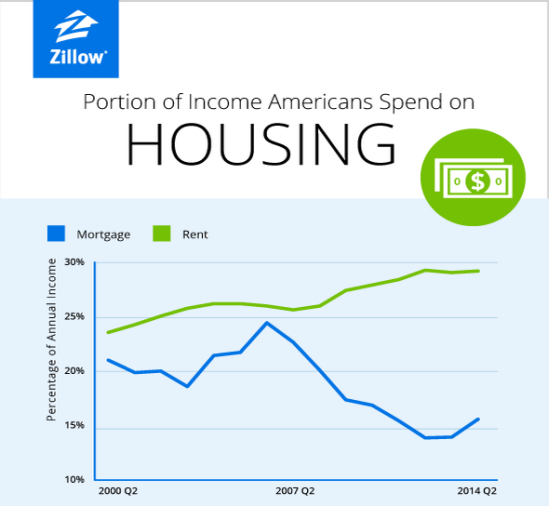(This is an excerpt from an article I originally published on Seeking Alpha on September 7, 2014. Click here to read the entire piece.)
I tracked down an article posted in Boston.com called “Renters Suffer as Evictions Surge in U.S.” after hearing the topic referenced in a recent Slate Money podcast. One of the guests quoted a dire statistic that 1 in 6 renters in New Jersey has been served eviction notices. I had to track down the article because it is an alarming statistic yet the guest was surprisingly vague on details and overall context. Unfortunately, the article did not provide enough details to understand the scope, scale, and significance of this situation. In a typical style that emphasizes storytelling over definitive proof, the article scattered its facts and stats around very compelling anecdotes and tragic tales of individual hardship. {snip}
The lack of comprehensive stats suggests that the increasing eviction notices are more local than national in scope. {snip} The article even acknowledges that eviction rates can depend on the legal and regulatory environment in a city or state.
{snip}
The rising demand for, and tight supply of, apartments means landlords can now afford to be more exacting in their standards, if not outright aggressive in replacing renters with those who can pay more. {snip}

Source: St. Louis Federal Reserve
The evidence on (aggregate) landlord behavior under these conditions of tight inventory must be mixed. For example, RealPage (RP) claimed in an earnings report near the beginning of the year that landlords surprised their in-house economist by choosing to secure lease renewals rather than go after the higher rents enabled by extremely low vacancy rates.
{snip}
Click link for larger view…

Source: The Joint Center for Housing Studies of Harvard University
This point was further emphasized by an August 20th report from Zillow (Z) titled “July Data: Buying Is a Bargain, But Renting Remains Expensive“:
{snip}

Source: Zillow
{snip}
The resulting lack of entry-level inventory throws otherwise qualified households into an already crowded rental market where in an a different time, they would have instead been home owners.
{snip}
Be careful out there!
Full disclosure: long DHI, KBH
(This is an excerpt from an article I originally published on Seeking Alpha on September 7, 2014. Click here to read the entire piece.)
